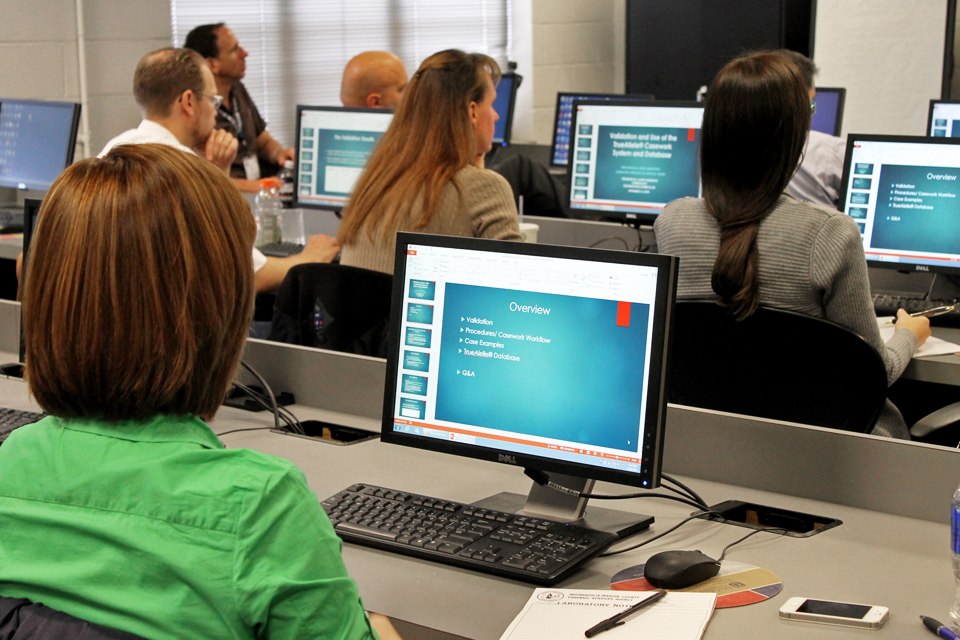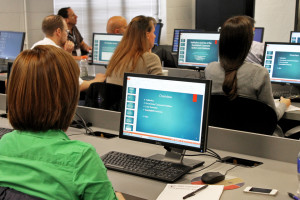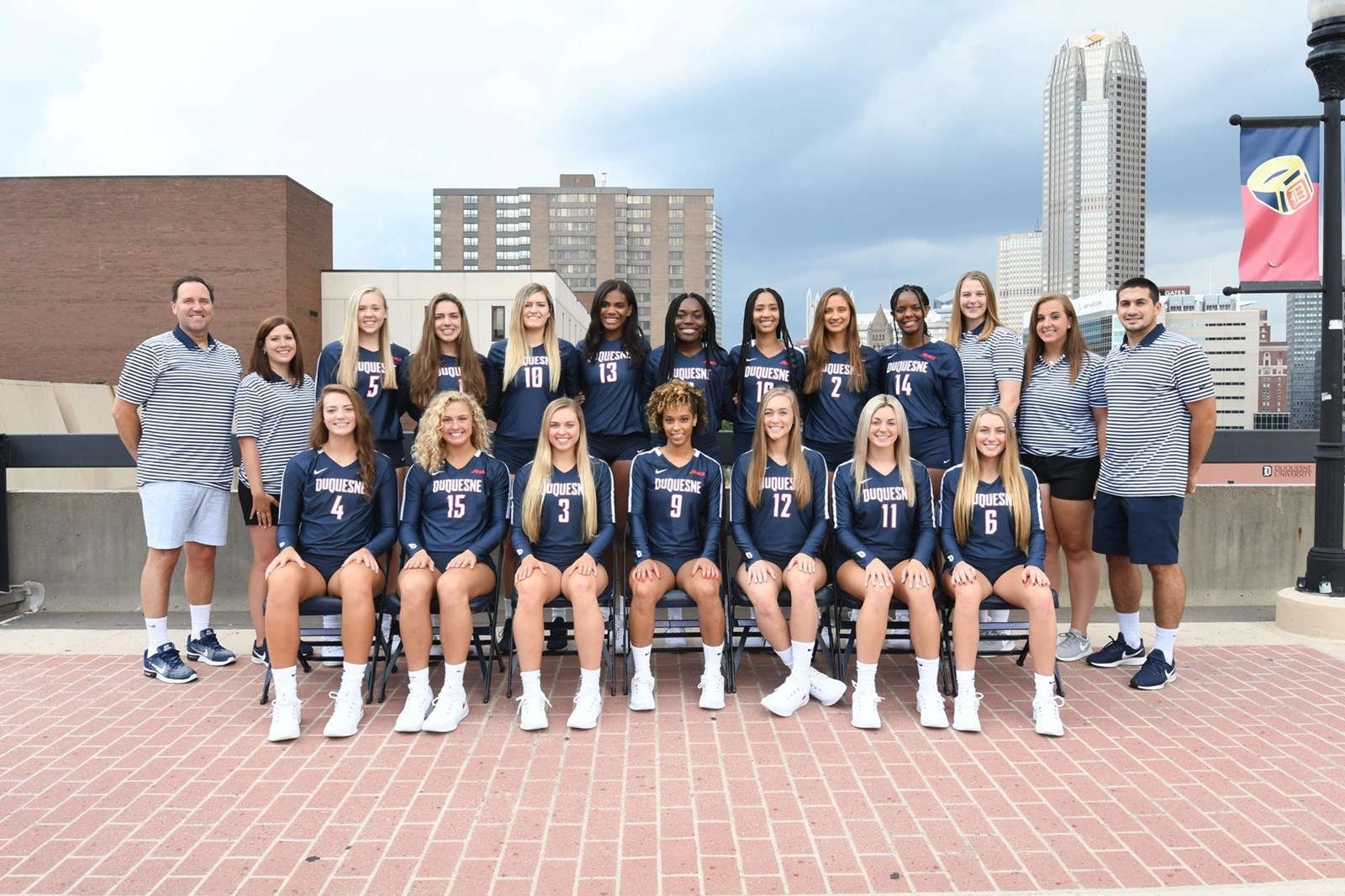

By Brandon Addeo | The Duquesne Duke
Forensic scientists and DNA experts from across the United States gathered at Duquesne this week for a DNA software training workshop.
The Technology Transition Workshop, sponsored by the Forensic Technology Center of Excellence (FTCE) trained forensics and DNA experts on four software programs that aid in DNA research and analysis.
The workshop hosted 22 on-site participants as well as about 100 online viewers, according to Lyndsie Ferrara, event coordinator and forensic science instructor at Duquesne. These participants included gene mappers, DNA analysts and forensic specialists hailing mainly from law enforcement agencies. They completed various tutorials on four different software programs: GeneMarker HID, TrueAllele, ArmedXpert and STRmix.
The main objective of the workshop was to introduce these programs so that participants could decide if they wanted to incorporate them into their respective laboratories, guest presenter and assistant professor of biomedical forensic sciences at Boston University, Catherine Grgicak said.
“[The workshop] is meant to introduce crime laboratory personnel to various probabilistic genotyping approaches,” Grgicak said. “It’s meant to introduce them to a variety of different ways … to interpret DNA mixtures.”
The four software programs read and interpret collected DNA mixtures, mainly intended for the use at crime labs, Grgicak said. While most of the techniques incorporated by these programs are not new, the programs’ method of determining DNA matches is a technology that was developed within the past decade.
The DNA-analyzing software programs on display at the workshop will greatly assist forensic researchers and analysts as well as change how forensic evidence is analyzed and interpreted in the future, according to Christian Wilson, an on-site participant and DNA analyst at the Tucson, Arizona police department.
“I think it helps to automate it,and it will become more automated in the future,” Wilson said. “Almost every lab I know has a backlog of DNA cases to do, so anything to make it faster and more reliable would be helpful.”
Grgicak also explained the long-term usefulness of forensics programs like those she instructed.
“What [the programs] will allow forensic scientists to do is appropriately analyze and interpret evidence which traditionally was not being analyzed,” Grgicak said. “It’s going to increase the number of samples that are compared to suspects…if you can increase the power of your interpretation, you can increase the number of samples you can properly interpret.”
Duquesne is one of three partner universities with the FTCE. The FTCE is an independent organization founded by a grant from the National Institute of Justice.




